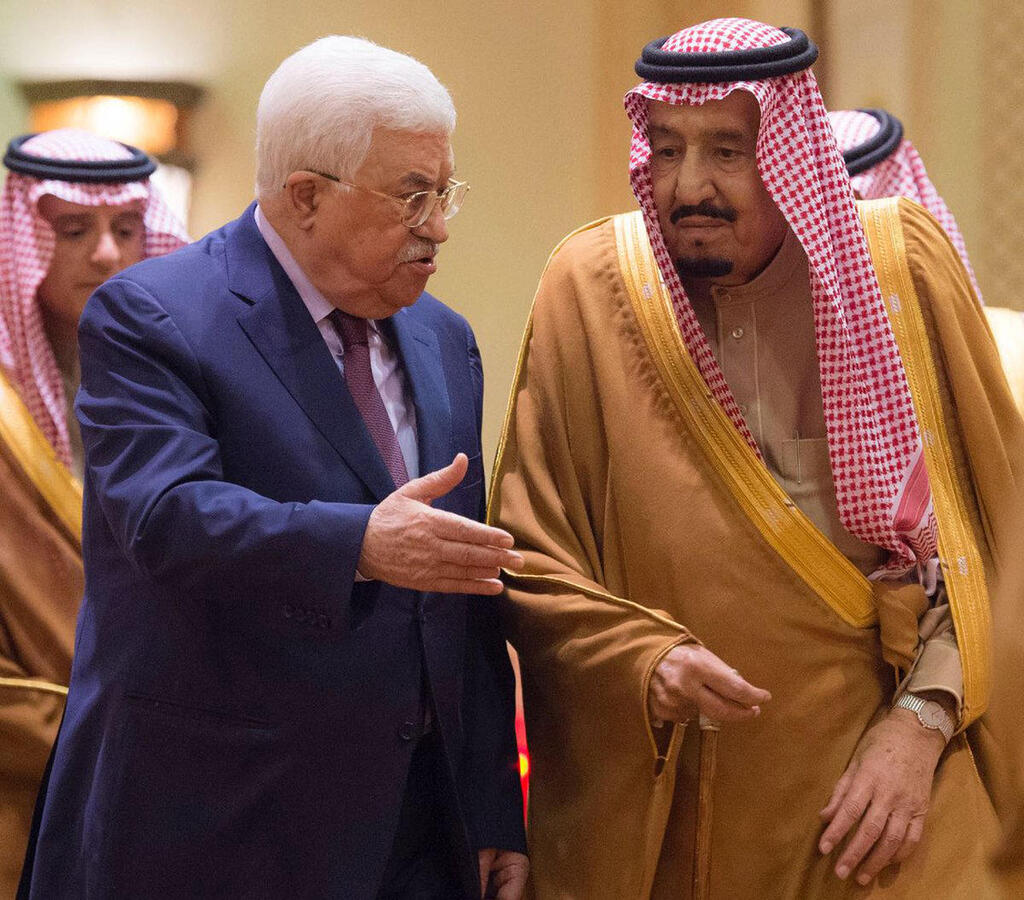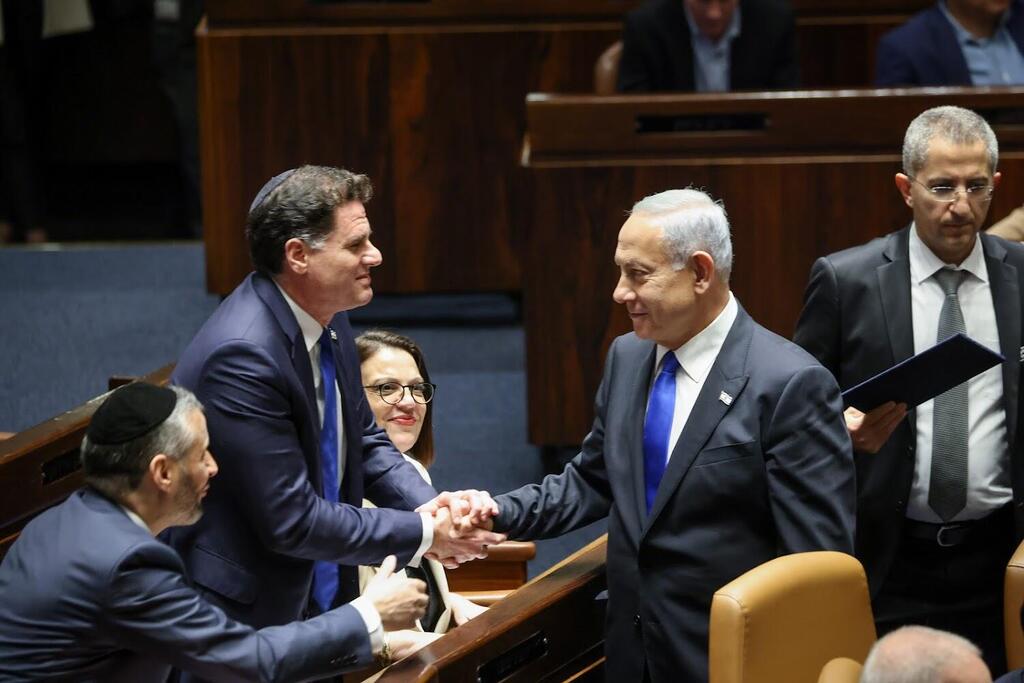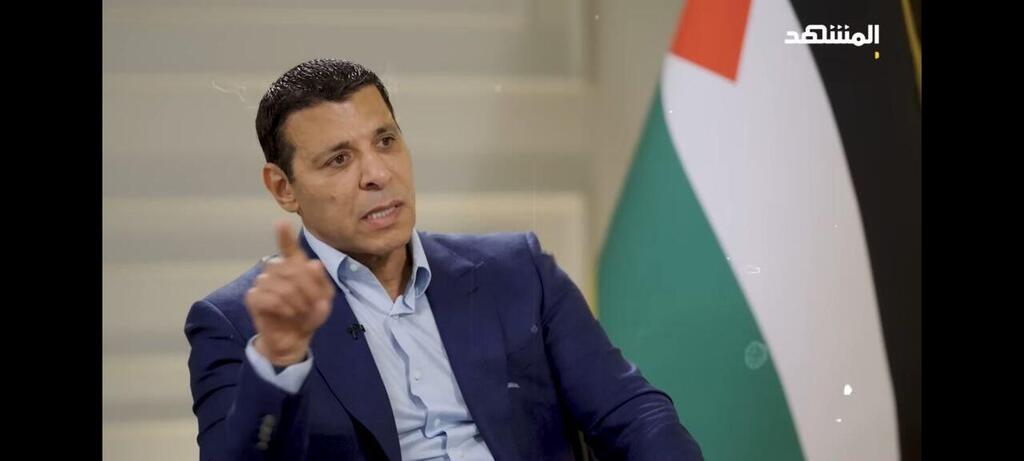After the negotiations concerning a potential normalization agreement between Israel and Saudi Arabia were frozen following the Gaza war that broke out on October 7, Reuters reported that Riyadh would be willing to settle for a mere political commitment from Israel to establish a Palestinian state in order to reach a defense alliance agreement with Washington before the U.S. presidential elections in November.
Read more:
According to two regional sources, Riyadh is interested in strengthening its defense to pushback on Iranian threats, so that it can move forward with its ambitious plan to revolutionize its economy that will lead to large foreign investments in the kingdom. The report claims that Saudi officials told their colleagues in Washington that Riyadh would not insist that Israel takes concrete steps to establish a Palestinian state and would settle instead for a commitment to a two-state solution.
6 View gallery
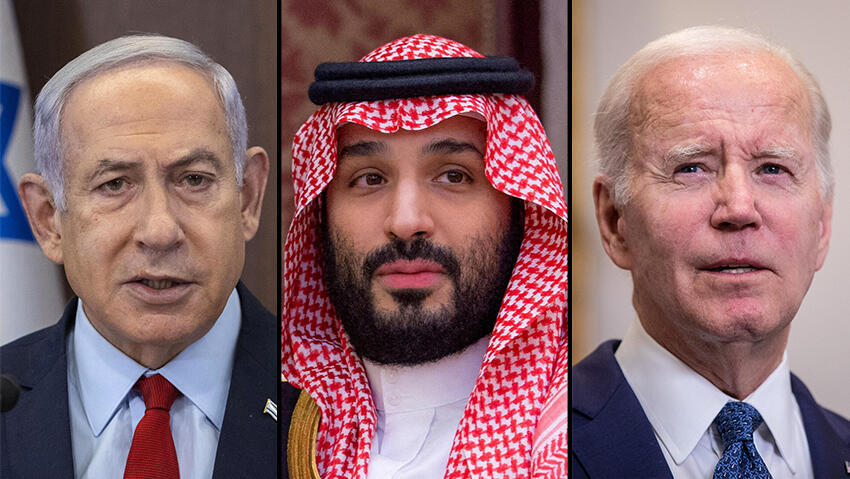

Netanyahu, bin Salman and Biden push discussions in different directions along with Palestinian state
(Photo: Ludovic MARIN / POOL / AFP, Bandar Algaloud/Courtesy of Saudi Royal Court/Handout via REUTERS, gettyimages, Amit Shabi)
A major regional deal of this kind between Israel and Saudi Arabia, perceived by many as presumptuous even before the war broke out, will still face many political and diplomatic obstacles, as well as the uncertainty as to how the fighting in Gaza will continue. This type of normalization agreement will also strengthen Israel's defense against Iran. Israel-Saudi Arabia normalization will grant U.S. President Joe Biden a diplomatic victory that he can use for the upcoming November 5 presidential election.
According to the Reuters report, the Saudi officials implored Washington to pressure Israel to end the war in Gaza and commit to a "political horizon" for a Palestinian state, and in return Riyadh would normalize relations with Israel and help finance the reconstruction of Gaza. "The message from the kingdom to America has been: 'Stop the war first, allow humanitarian aid and commit to a just and lasting solution to give the Palestinians a state'," said Abdelaziz al-Sagher, head of the Gulf Research Center think-tank in Jeddah, who is familiar with the ongoing discussions. "Without it, Saudi Arabia can't do anything."
6 View gallery
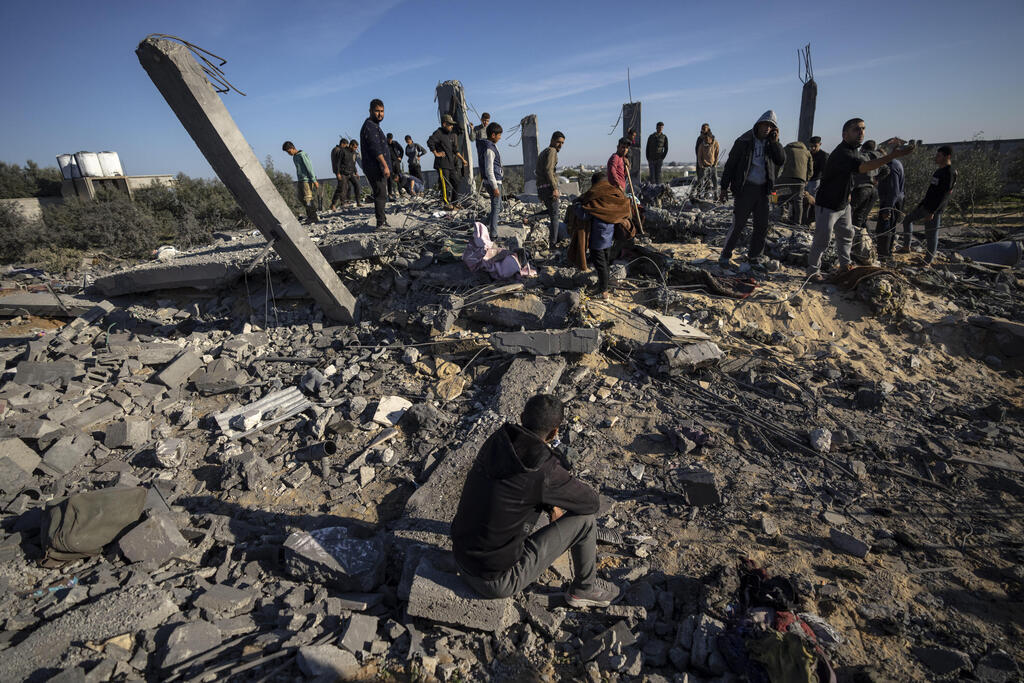

'Stop the war first, allow humanitarian aid and commit to a just solution to give Palestinians a state'
(Photo: AP/Fatima Shbair)
"Normalization does require really - if not legally, at least politically - a commitment from the Israelis that they are open to a two-state solution," said one of the senior regional sources familiar with Saudi thinking. "If Israel stopped its military offensive on Gaza - or at least declared a ceasefire - it would make it easier for Saudi Arabia to go ahead with the deal," the person said.
The sources did not specify exactly what an acceptable path to "Palestinian statehood" would include, that would give the Saudis leeway to finalize an agreement with Israel. In any case, in the past the Arab world was willing to recognize Israel only in exchange for its withdrawal from the territories it conquered in the Six Day War in 1967 and according to the sources this is no longer the case.
The Gulf Research Center's Sagher said, however, that Riyadh and other Arab diplomats have told U.S. Secretary of State Antony Blinken and other visiting U.S. officials that without concrete and serious U.S. pressure on Israel, Palestinian statehood would not happen.
"U.S. diplomatic efforts are currently focused on the immediate crisis," a White House National Security Council spokesperson said when asked about the status of normalization. "But we remain committed to the long-term goal of a more stable, prosperous, and integrated Middle East region, including through normalization and advancement of a two-state solution," he added.
A senior Israeli official who spoke to Reuters said that the chance of Netanyahu talking about a Palestinian state is zero. However, he added that "that doesn't mean the Saudis can't talk about it, or anyone else." According to him, "As Israel made clear, the Palestinians will not have sovereignty in terms of being able to maintain an army, sign agreements with Iran or threaten Israel in any way." Netanyahu said only recently that Israel will have to control security over all the territory west of the Jordan River. The senior Israeli official said that the normalization talks are being conducted solely by Netanyahu and his confidant, Strategic Affairs Minister Ron Dermer.
"Israel will have to make difficult decisions"
An American official said that Washington believes that Riyadh's strong desire to secure security guarantees from the U.S. means that it would also be willing to show some flexibility about what would constitute an Israeli commitment to a path to a Palestinian state. One possible scenario would be that Netanyahu could stop opposing that notion that the Palestinian Authority will play a significant role in Gaza the day after the war.
Establishing relations with Saudi Arabia, the center of the Muslim-Sunni world, will be Netanyahu's greatest diplomatic success, while for the Palestinians - normalization will put their aspirations for an independent state with full Arab backing back on the table.
Former head of the Palestinian Authority's Preventive Security Service Muhammed Dahlan, told Reuters that "For the first time, I feel that there is a unified, unanimous, and sincere Arab agreement on the two-state solution to resolve the conflict. The question is whether the United States is serious and capable of weighing in on Netanyahu to achieve that goal."
According to the American source, the Biden administration believes Netanyahu is willing to keep the prospects of Israeli-Saudi normalization alive, but he has shown no sign of softening his opposition to concessions to the Palestinians, in part because of the potential to destabilize his far-right coalition.
On his trip to the Middle East last month, Blinken held meetings in Turkey, Jordan, Qatar, the United Arab Emirates and Saudi Arabia and then presented Israel with the unified regional position on the establishment of a Palestinian state. He said that Israel will have to make difficult decisions to ensure its long-term security and integration in the region.
6 View gallery
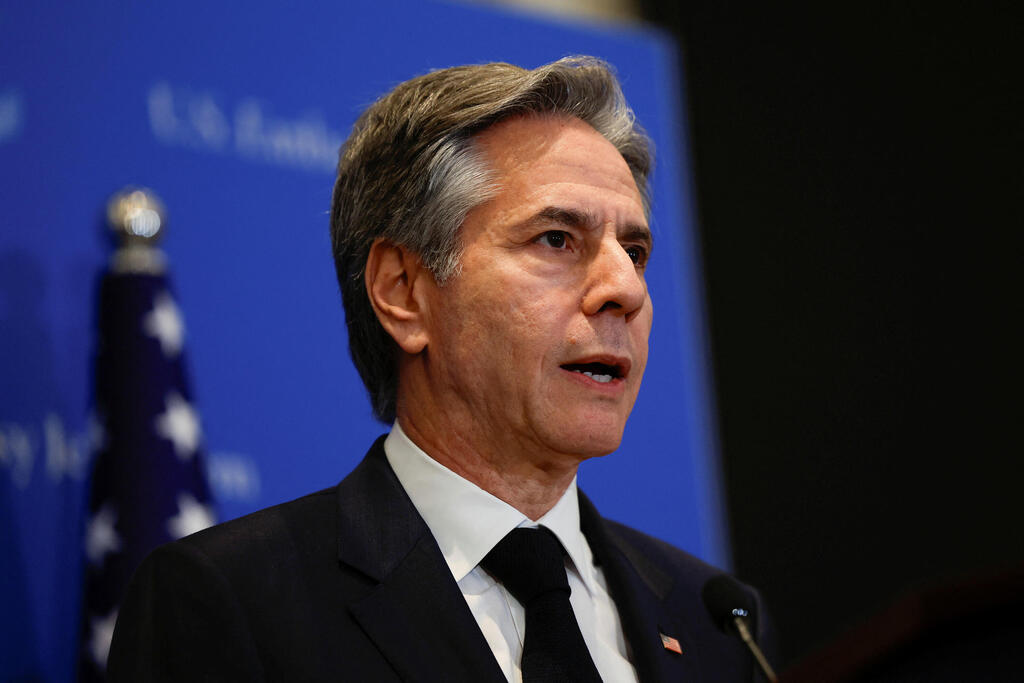

U.S. Secretary of State Antony Blinken will travel to Middle East again to discuss deal
(Photo: REUTERS/Evelyn Hockstein/Pool)
The new proposal for a ceasefire between Israel and Hamas and the release of the hostages may give Crown Prince Mohammed bin Salman an opportunity to reach an agreement. "Biden is extremely keen on the agreement. Saudi Arabia is extremely keen on the agreement," said one of the senior regional sources close to Saudi thinking. "These two parties recognize that time is very tight and they need to do it soon, but the Israelis are making it difficult."


